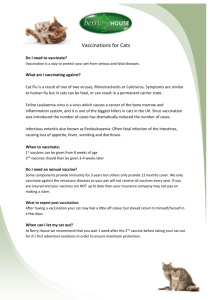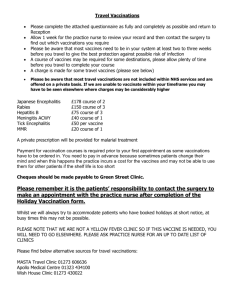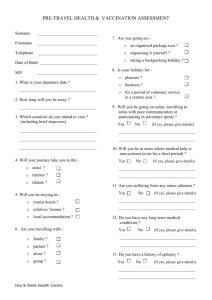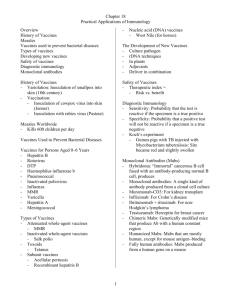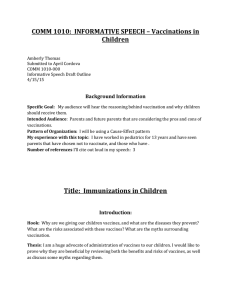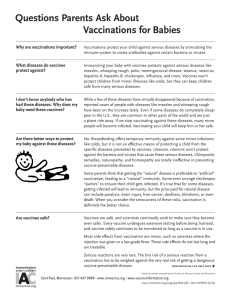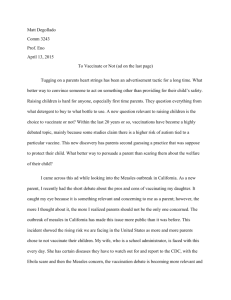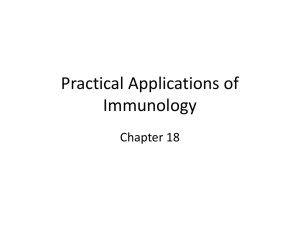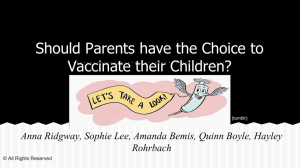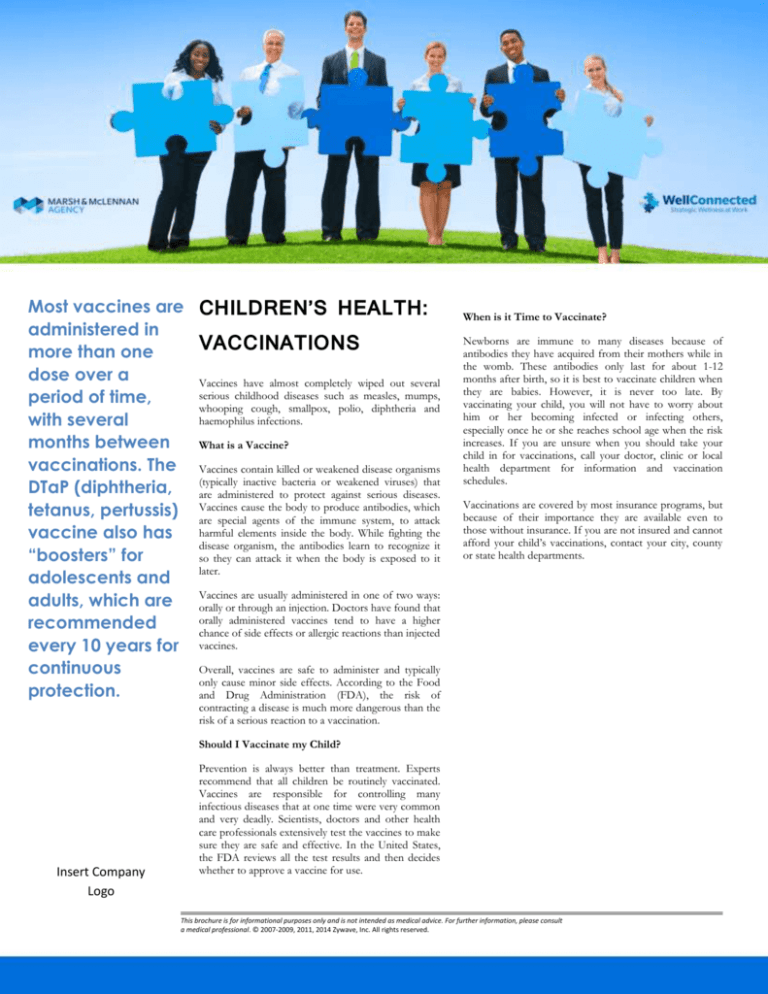
Most vaccines are CHILDREN’S HEALTH:
administered in
VACCINATIONS
more than one
dose over a
Vaccines have almost completely wiped out several
serious childhood diseases such as measles, mumps,
period of time,
whooping cough, smallpox, polio, diphtheria and
haemophilus infections.
with several
months between
What is a Vaccine?
vaccinations. The Vaccines contain killed or weakened disease organisms
(typically inactive bacteria or weakened viruses) that
DTaP (diphtheria,
are administered to protect against serious diseases.
cause the body to produce antibodies, which
tetanus, pertussis) Vaccines
are special agents of the immune system, to attack
vaccine also has harmful elements inside the body. While fighting the
disease organism, the antibodies learn to recognize it
“boosters” for
so they can attack it when the body is exposed to it
later.
adolescents and
are usually administered in one of two ways:
adults, which are Vaccines
orally or through an injection. Doctors have found that
orally administered vaccines tend to have a higher
recommended
chance of side effects or allergic reactions than injected
every 10 years for vaccines.
Overall, vaccines are safe to administer and typically
continuous
only cause minor side effects. According to the Food
protection.
and Drug Administration (FDA), the risk of
When is it Time to Vaccinate?
Newborns are immune to many diseases because of
antibodies they have acquired from their mothers while in
the womb. These antibodies only last for about 1-12
months after birth, so it is best to vaccinate children when
they are babies. However, it is never too late. By
vaccinating your child, you will not have to worry about
him or her becoming infected or infecting others,
especially once he or she reaches school age when the risk
increases. If you are unsure when you should take your
child in for vaccinations, call your doctor, clinic or local
health department for information and vaccination
schedules.
Vaccinations are covered by most insurance programs, but
because of their importance they are available even to
those without insurance. If you are not insured and cannot
afford your child’s vaccinations, contact your city, county
or state health departments.
contracting a disease is much more dangerous than the
risk of a serious reaction to a vaccination.
Should I Vaccinate my Child?
Insert Company
Logo
Prevention is always better than treatment. Experts
recommend that all children be routinely vaccinated.
Vaccines are responsible for controlling many
infectious diseases that at one time were very common
and very deadly. Scientists, doctors and other health
care professionals extensively test the vaccines to make
sure they are safe and effective. In the United States,
the FDA reviews all the test results and then decides
whether to approve a vaccine for use.
This brochure is for informational purposes only and is not intended as medical advice. For further information, please consult
a medical professional. © 2007-2009, 2011, 2014 Zywave, Inc. All rights reserved.

